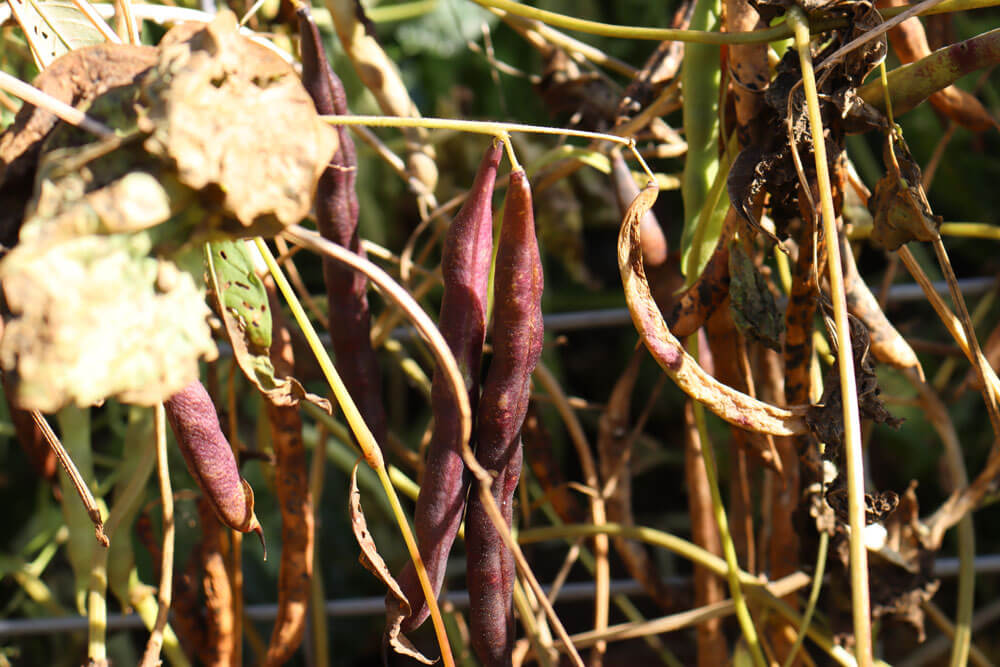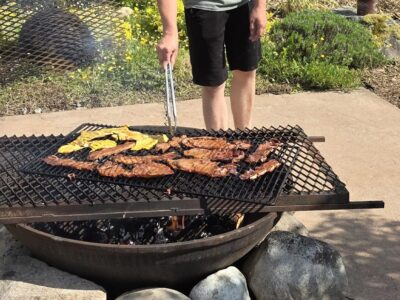If you have been homesteading for any length of time, or you’re just getting started with your homestead, there comes a time when you begin to feel overwhelmed with all of the work and everything that needs to get done.
Bottom line, what do we do when homesteading gets tough?
This usually happens to me each year just as fall is rolling around. It’s the last big push to bring in all of the harvests. The majority of them all come in at once and need to be put up, root cellared, or canned. The weather turns bad and we’re having to feed the animals more often because the grass becomes dormant.
There’s just a LOT more work all at once! Usually, this happens within about a six week period and can start to feel overwhelming.
In episode #277 of the Pioneering Today podcast, I’m discussing the realities of being a homesteader and what it’s truly like, even in the busy seasons. I don’t see these hard times talked about enough and it gets easy to feel alone in it all.
Rest assured, you’re not alone! And I hope today’s podcast episode encourages, brings solidarity, and allows for a glimmer of hope that it’s truly just a season. And most importantly, remember your “why”!
- What to do when we get overwhelmed with the homesteading life.
- How to ask ourselves those tough questions to find out our true priorities.
- Knowing when to say no, or when to take a break from the non-essentials.
- Remembering our “why” for living this homesteading lifestyle.
- Why it’s important to keep track of and record your expenses on the homestead.
- How to use my Family Garden Planner – it’s filled with a yearly, monthly, weekly, and daily planner for the homestead, with places to tally the harvest yields each day, as well as how much you’re able to put up from each crop, and so much more! Pre-order your Family Garden Planner here.
- Think of your homestead as a job.
- Previous podcast: 5 Tips on Cutting Your Debt.
[fusebox_transcript]
Interested in hearing from more homesteaders? Check out these interviews.
- Aquaponic Gardening & Raising Tilapia with VW Family Farms
- Tips for Homesteading Off-Grid & Life w/out a Fridge or Running Water
- 7 Self-sufficiency and Simple Living Lessons from the Amish
- Urban Homesteading – Tips for Small Space Self-Sufficiency
- Living Like it’s the 1800’s – Wood Stove Cooking & Frugal Living Tips
- How to Get Everything Done in a Day Without Wasting Time or Getting Distracted
- How Homesteading Helped Lyme Disease Recovery
- Biggest Homestead Mistakes We Made & What to Avoid
- How to Buy a Homestead – What to Look For
- Foolproof Methods When Garden Overwhelm Sets In Jessica Sowards of Roots & Refuge
- Maximizing Your Homestead for Profit & Production (with Joel Salatin)
- Eating a Year of Hand Harvested Food with Alexia
- The Homestead Documentary Project



